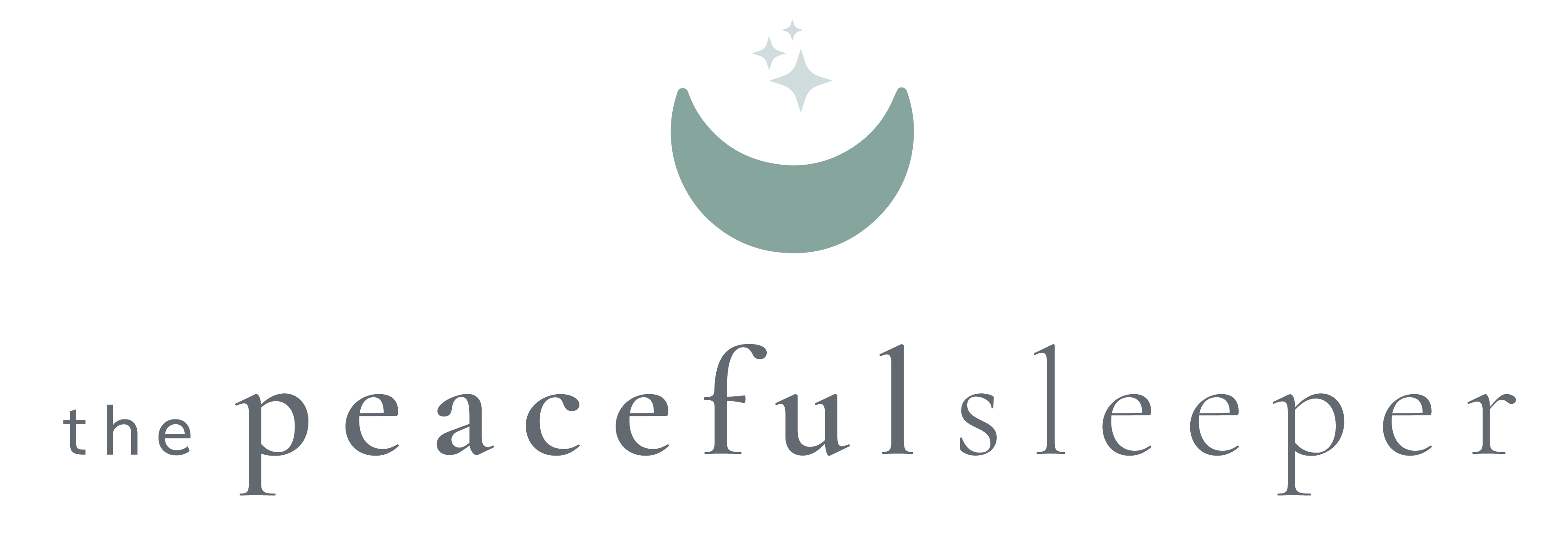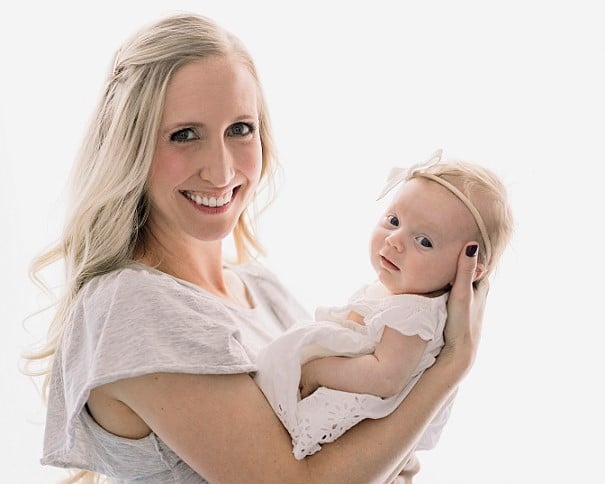We talk a lot about sleep regressions, but the big one that deserves the most amount of attention is the 4 month sleep regression.
The is mainly because of two important factors. One is that the 4 month sleep regression is when sleep REALLY falls apart, and the other is that it marks a big change in your baby’s sleep. Your little one is exiting the newborn stage, and there is now the opportunity for your baby to learn solid sleep skills that will benefit them throughout their entire lives.
In this blog post, I am going to chat about what defines the 4 month sleep regression, signs you know you are entering it, how long it will last and how to navigate through the regression and optimize your baby’s sleep.
What is the 4 month sleep regression?
What are the signs of the 4 month sleep regression and how long does it last?
What to do when the 4 month sleep regression hits
What is the 4 month sleep regression?

The 4 month sleep regression is when your baby’s sleep starts going downhill. And for most babies (and parents!) I mean downhill hard and fast! It IS the most famous of the sleep regressions for a reason.
All is not lost though! The reason why the 4 month sleep regression happens is actually a very interesting and exciting reason!
Around 4 months, your baby’s brain changes and is capable of deeper and more restorative sleep. It’s just getting into those deeper sleep cycles that can be a tricky skill to master.
When your baby is a newborn, they can drift in and out of sleep pretty easily and have a strong sleep drive. You probably have noticed that your newborn can nap pretty much anywhere, surrounded by the hustle and bustle of your busy household (read: your toddler blasting Paw Patrol while your dog barks at every passing squirrel).
As you know all too well, that all comes to a screaming halt around 4 months. This is the time when they are ready for deeper and more restorative sleep cycles, but the problem is, they need to learn how to enter this deeper phase of sleep on their own, in order for them to connect sleep cycles and stay asleep longer.

Want to know how to teach your baby these invaluable skills? Keep reading!
4 month sleep regression signs & how long does it last?
Most babies enter the 4 month sleep regression right around 4 months. You will know for sure when sleep completely falls apart.
Here are some common 4 month sleep regression signs:
- More night wakings
- Crap naps: Short 30-40 minute naps
- Early morning wakings: Anytime before 6am is an early morning waking
- False starts: Waking up very soon after you got them to sleep for the night
- Very difficult to get your baby to sleep
- Suddenly have to be held for every nap and during the night
So… how long does the 4 month sleep regression last?
The 4 month sleep regression can last anywhere from a few weeks to months. I know. Sounds terrifying. But it doesn’t have to be! The way through the 4 month sleep regression (and for it to last as short as possible), is to teach your baby independent sleep skills (more on this below!)
What to do when the 4 month sleep regression hits – tried & true solutions
OK, we’re here! The section you’ve been waiting for!

The great part of the 4 month sleep regression is that there is a solution to getting through it, other than “ride it out”. And believe me, this IS good news as for most of the other sleep regressions, there isn’t as great of a solution.
So when the 4 month sleep regression hits, it is time to teach your baby independent sleep skills. They are now capable of learning to self-soothe, connect sleep cycles and have deeper and more restorative sleep.
This is SUCH exciting news! Not only are you going to be able to give your baby the gift of lifelong solid sleep skills and habits, but you are also going to get them into a predictable sleep schedule, AND you are going to finally get the rest you need. Think of all the extra time you’re going to have! (To be clear, we are not adding more hours in a day, we are just giving you back the insane amount of time that you have been losing every day, trying to get your baby to sleep and to stay asleep) .
So how do you teach your baby independent sleep skills?
Our method is all about working with your baby, in their zone of proximal development, as you gradually release your level of interventions and support to sleep, all while tuning into your baby’s cues and signs of readiness.
Sleep learning is broken down into four phases:
1. Optimize your baby’s sleep schedule
Every baby’s sleep needs are different. We want to optimize YOUR baby’s sleep so they are on a sleep schedule that is best for them. PS- Check out a 4 month old sleep schedule here.
2. Independent sleep initiation
Teaching your baby to put themselves to sleep at bedtime and naps independently. (How you go about doing this depends on what approach you choose. Our approaches range from accelerated to gradual approaches and all are meant to be tailored to best suit you and your baby.
3. Lengthen Naps
Teach your baby to connect sleep cycles and take 1-3 hour naps in their own sleep space.
4. Drop any unnecessary night wakings
At this point in the learning process, most unnecessary night wakings have dropped all on their own! If there are any night wakings left and they are not for a feed that your baby needs, then now is the time when we can work on dropping them.
This has been just a quick overview of what sleep learning means and what the phases are. My 4-24 Month Package teaches you everything you need to know about all the approaches and how to tailor whatever approach you choose to best fit you and your baby.
Or, you can work with one of our amazing sleep consultants! This is a great option if you want to work collaboratively with a sleep expert to create an individualized sleep plan and have one on one support through the whole process.
4 month sleep regression recap & next steps

All in all, the 4 month sleep regression can be rough. I feel you! I’ve been through it personally, 4 times with each of my daughters. The best way through the regression is teaching your little one independent sleep skills! Not only does it solve your short term sleep challenges but it teaches your baby healthy sleep habits and skills that will last their whole life.
Please remember that you don’t have to go through this alone. Working with an expert in baby sleep takes away all of the overwhelm and means you can collaboratively create an individualized sleep plan that is exactly what YOUR baby needs.
Note: When we say 4-month sleep regression it can of course happen in the 4-5 month old range, every baby is different!



0 Comments